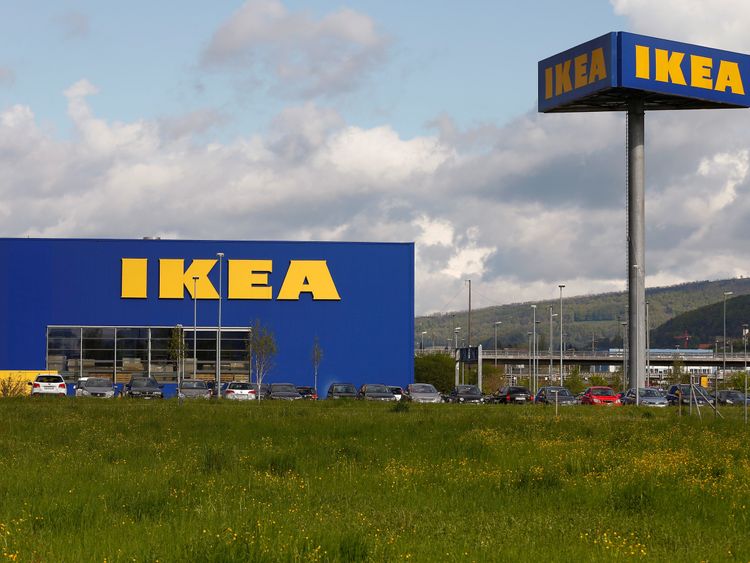Mr Kamprad, who founded the firm in 1943 at the age of just 17, passed away following a "brief illness".
"His legacy will be admired for many years to come and his vision - to create a better everyday life for the many people - will continue to guide and inspire us," said IKEA Group CEO and president Jesper Brodin.
From its inception on Mr Kamprad's family farm, IKEA grew into a global furniture empire and one of the world's most recognisable brands after pioneering flat-pack furniture in 1956.
Mr Kamprad had the brainwave when he watched an employee taking the legs off a table to fit it into a customer's car, an idea which that company said made him "one of the greatest entrepreneurs of the 20th century".
"Ingvar Kamprad was a great entrepreneur of the typical southern Swedish kind - hardworking and stubborn, with a lot of
warmth and a playful twinkle in his eye," the firm said in a statement.
"He worked until the very end of his life, staying true to his own motto that most things remain to be done."
More than 70 years after its founding, the retailer is now heading for close to £44bn in annual revenues.
There are more than 400 IKEA stores worldwide, including 20 in the UK. Germany and the US lead the way with more than 40 stores each.
Its far-reaching success often saw Mr Kamprad appear on lists of the world's richest men, although he was said to have never assumed the aura of a tycoon, continuing to dress unassumingly and choosing to drive a modest Volvo.
He revealed in a book about the company's history that its iconic name was formed from his own initials, the first letters of the family farm, Elmtaryd, and the parish where it is located, Agunnaryd.
He also used the book to give details about his "youthful delusions" in supporting the Nazis, having been influenced by his German grandmother's support for Adolf Hitler.
Mr Kamprad admitted to having sympathies with Swedish fascist leader Per Engdahl in the 1940s and 1950s, which he described as "a part of my life which I bitterly regret".
In the 1970s he moved to Switzerland to avoid paying Swedish taxes, which were the highest in the world, and only moved back in 2011.
In June 2013, he announced his retirement from the IKEA board and handed his responsibilities over to his son, Mathias.



